ACCOUNTING EXPERT - Generative AI and data protection: how to reconcile innovation and confidentiality? Cahier de l'académie n° 43
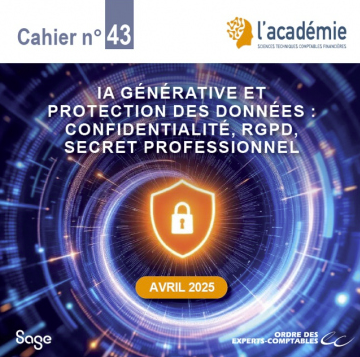
The meteoric rise of generative artificial intelligence is shaking up professional practices, particularly in AI for the legal and accounting professions. Since the end of 2022, tools such as ChatGPT, Copilot, Claude and Llama have become part of everyday practice. They can be used to write, analyze, synthesize and automate numerous tasks. But one question remains [...]
New European AI regulation
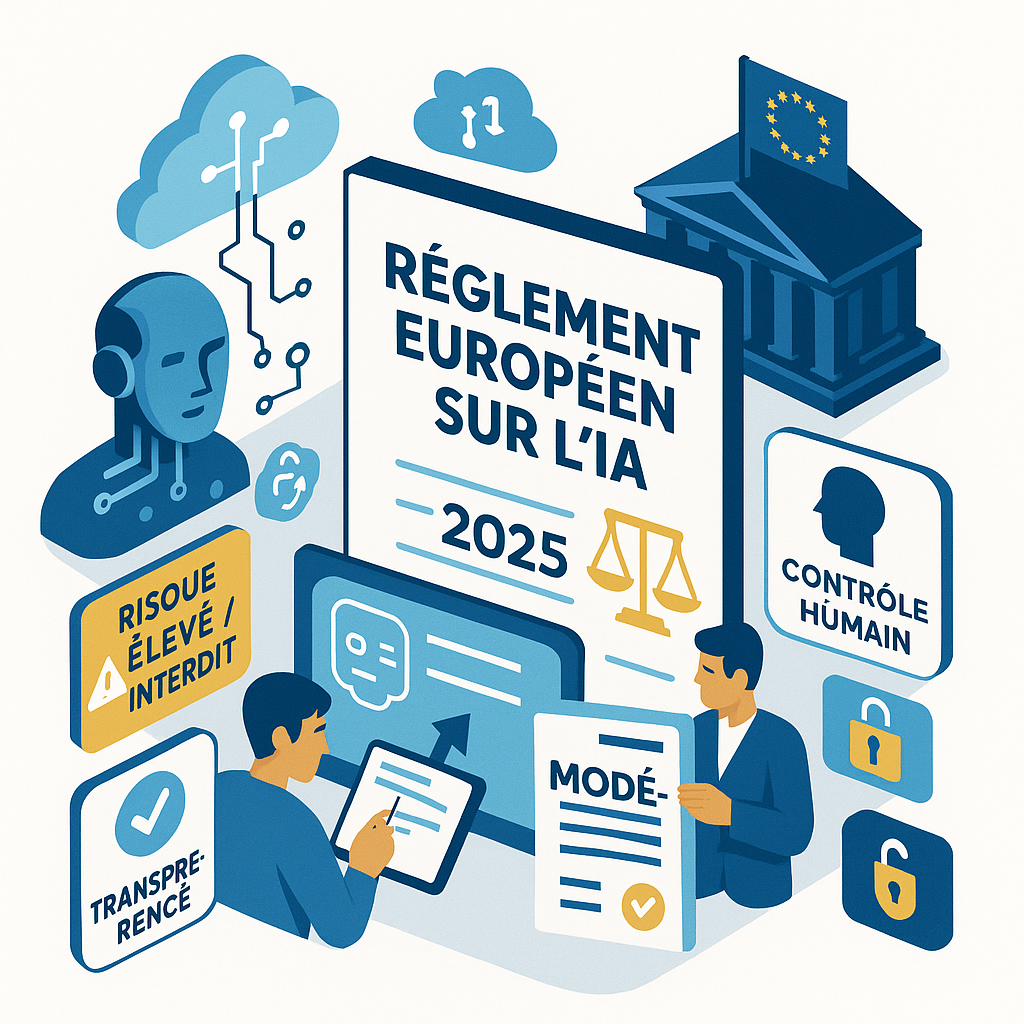
In a world where artificial intelligence (AI) is becoming unavoidable, the European AI Regulation (EIR) has emerged as an essential framework to ensure responsible adoptability. Indeed, as AI systems are integrated into many sectors, the regulation of their deployment is of crucial importance to ensure their reliability, ethics and [...]
Artificial intelligence and public services: CNIL's sandbox assessment
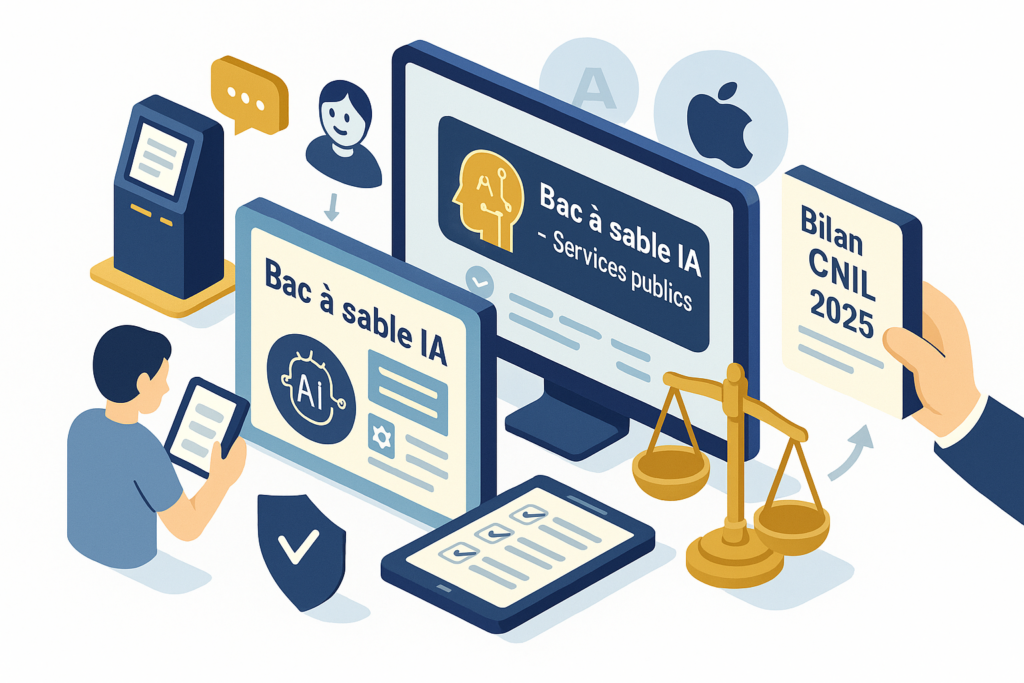
Artificial intelligence (AI) is set to profoundly transform public services, and the Commission Nationale de l'Informatique et des Libertés (CNIL) is emerging as a key player in this evolution. With its innovative sandbox program, the CNIL offers essential personalized support for the development of AI projects, guaranteeing a [...]
Buzz surrounding AI-generated Ghibli-style images: what lessons can be learned?
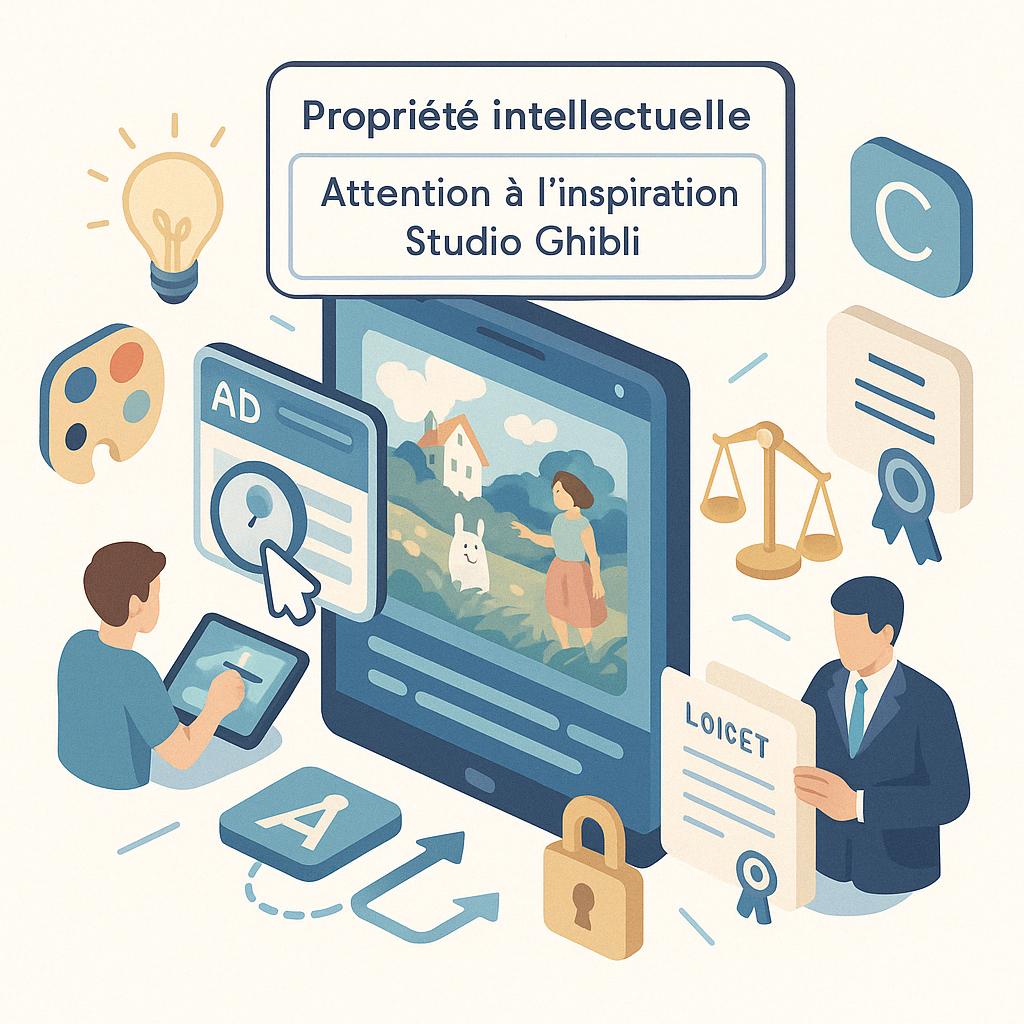
AI raises thorny intellectual property issues with its ability to generate Ghibli-quality images. With the advent of new technologies, artificial intelligence has taken artistic creation to a monumental new level. The appearance of DALL-E 3, integrated into OpenAI's ChatGPT platform, has not only captivated a wide audience with its [...]
The essential questions to ask before adopting a charter of good practice in artificial intelligence in business
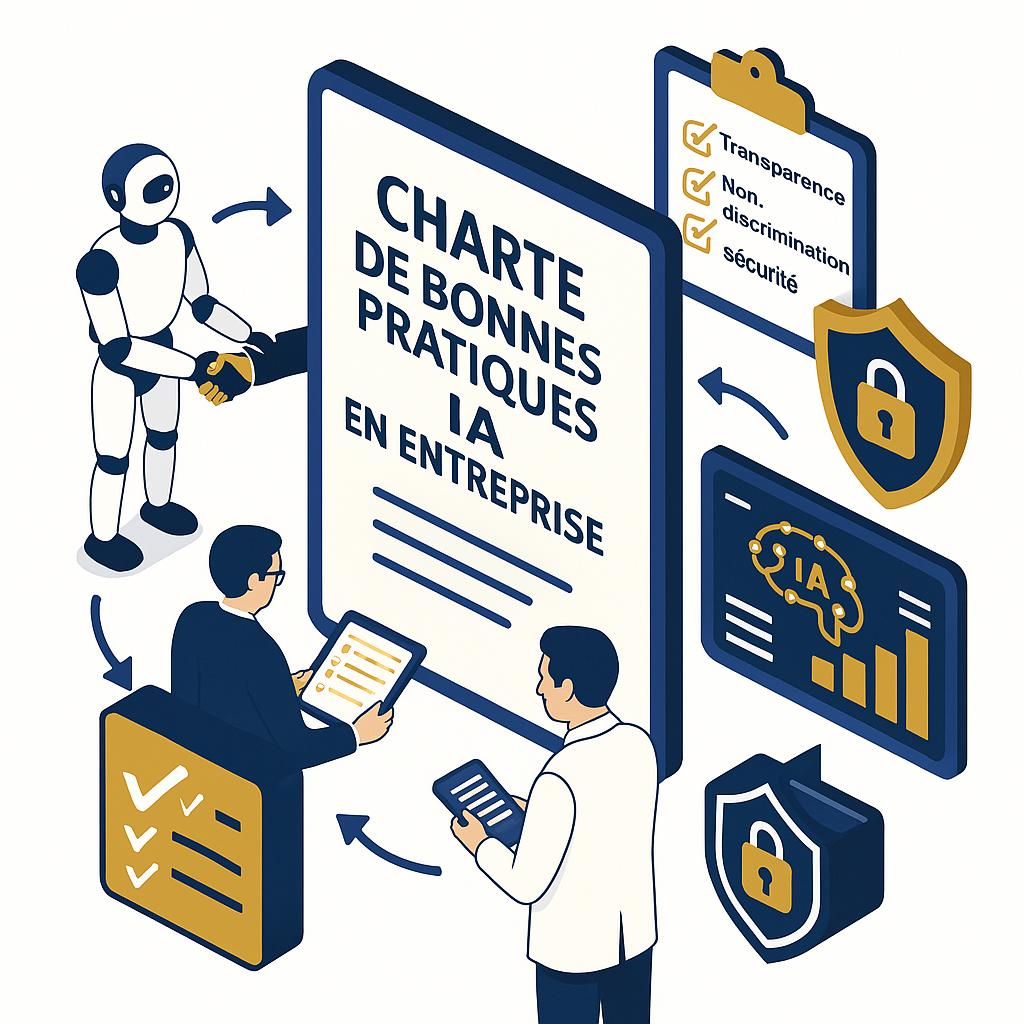
Adopting an AI best practices charter is becoming crucial in a context where artificial intelligence (AI) is significantly transforming the corporate landscape, raising a variety of issues ranging from ethics to compliance. This is an important step for organizations wishing to frame the use of these technologies while minimizing risks. By clearly defining [...]
Background and intellectual property issues of generative AI
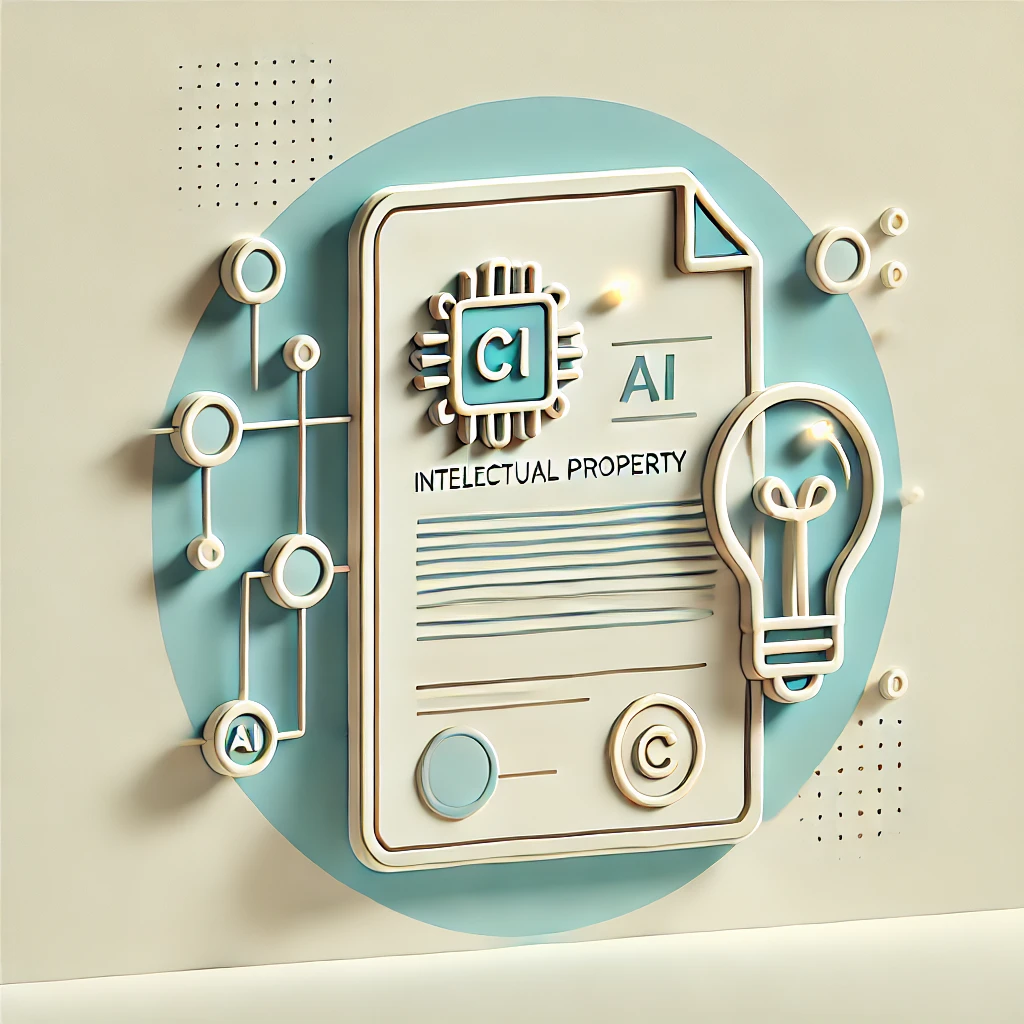
Comment appréhender la propriété intellectuelle traditionnellement destinée à protéger des œuvres vis-à-vis de l’IA générative ? L’essor de l’intelligence artificielle générative transforme la création de contenus dans de nombreux domaines, qu’il s’agisse de textes, d’images ou de vidéos. Ces technologies, utilisant des modèles d’apprentissage automatique, permettent de produire des œuvres à grande échelle et en […]
Who owns the rights to a work generated by artificial intelligence (AI)?
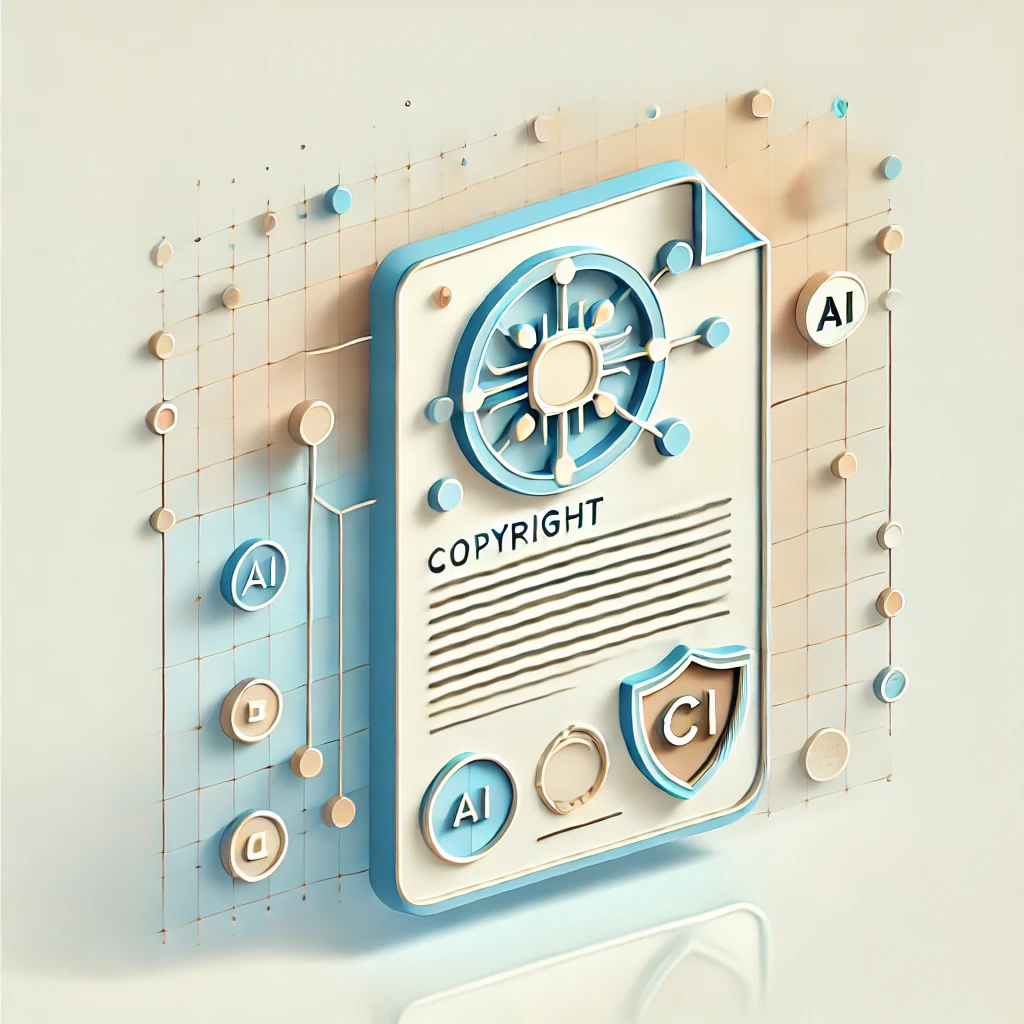
Avec les progrès de l’IA, la titularité des droits sur une œuvre générée par une intelligence artificielle (IA) devient floue. L’essor de l’intelligence artificielle générative révolutionne la création de contenus, qu’il s’agisse de textes, d’images, de vidéos ou encore d’œuvres musicales et de logiciels. Grâce à des modèles avancés tels que GPT, DALL·E ou Stable […]
IA ACT - Implementation
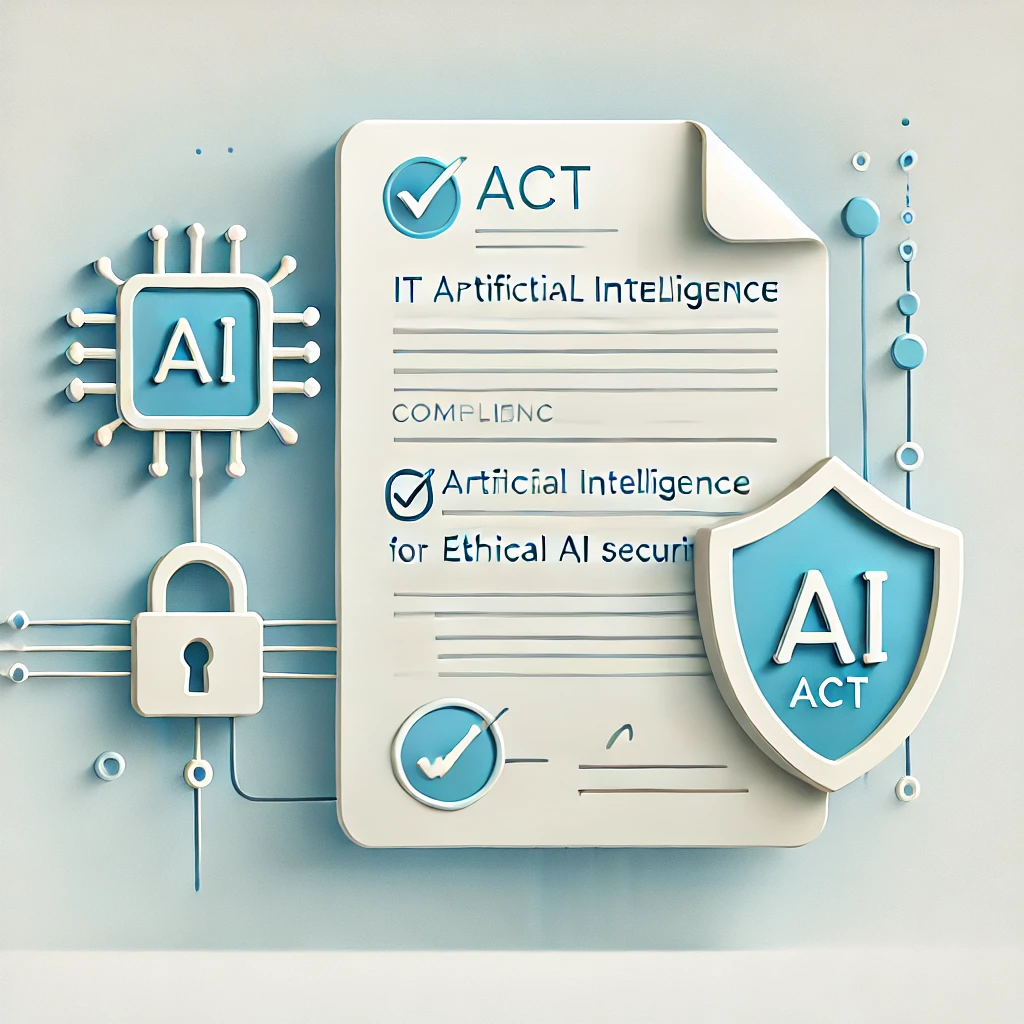
La loi sur l’IA est le tout premier cadre juridique, qui s’attaque aux risques de l’IA et permet à l’Europe de jouer un rôle de premier plan à l’échelle mondiale. La loi sur l’IA (règlement (UE) 2024/1689 établissant des règles harmonisées en matière d’intelligence artificielle) est le tout premier cadre juridique complet sur l’IA à […]